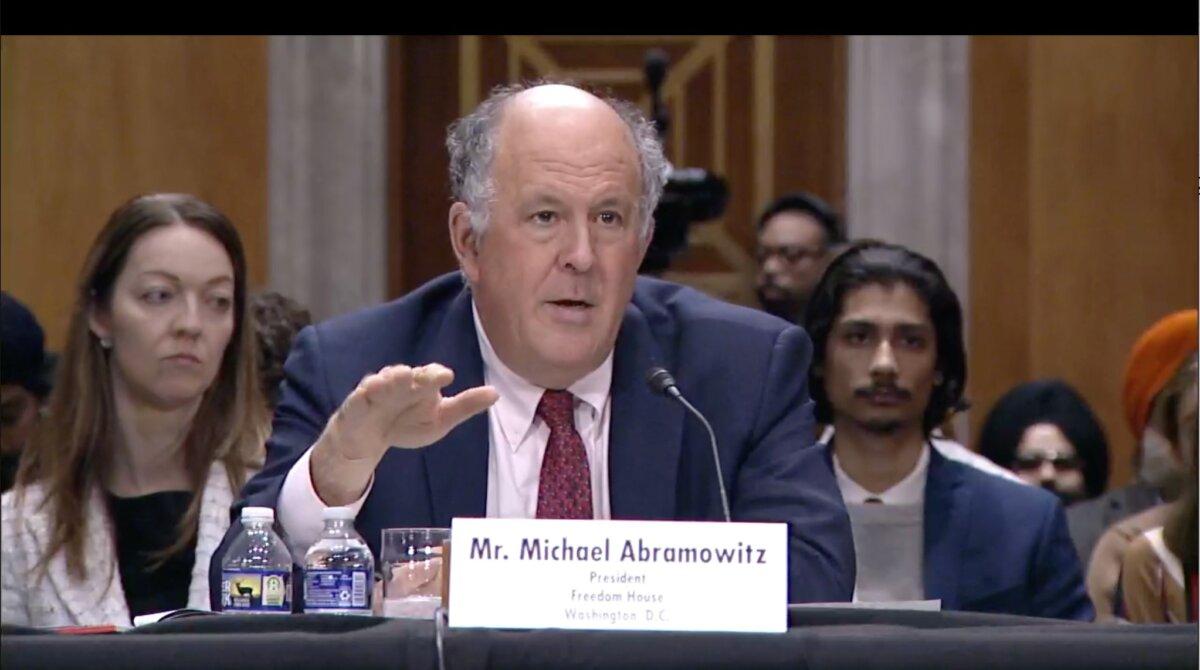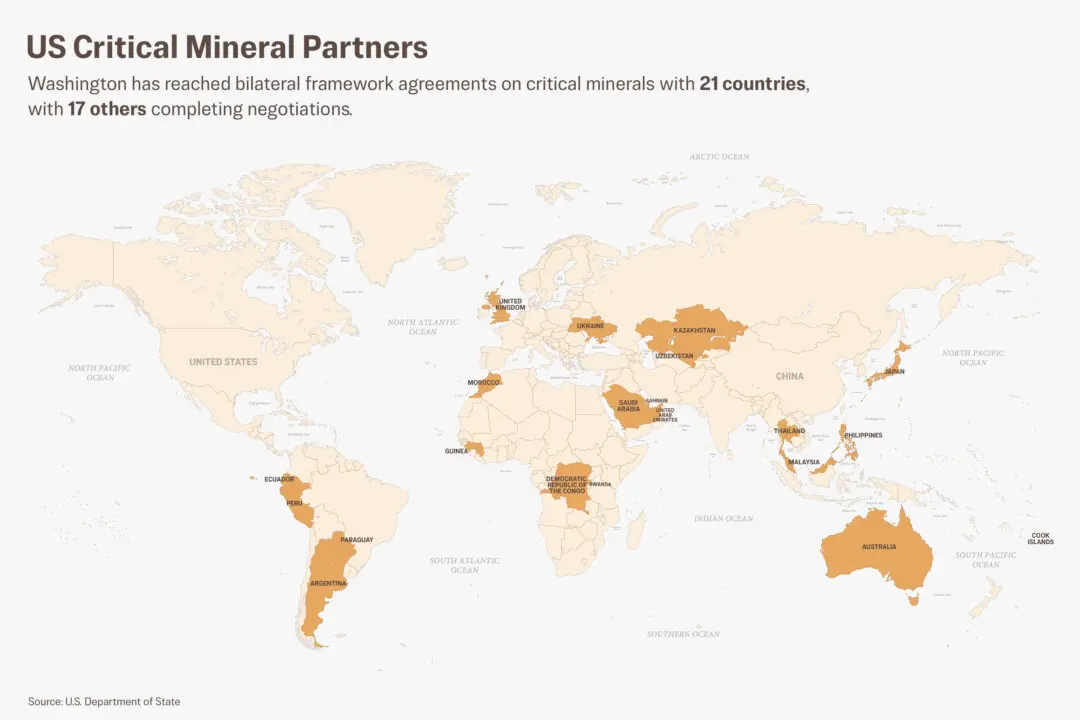Experts expressed grave concerns about the role China’s mass DNA collection may play in its transnational repression—the Chinese Communist Party’s (CCP) harassment or assaults of individuals in other countries—at Wednesday’s Senate Foreign Relations Committee hearing.
Sen. Jeanne Shaheen (D-N.H.) raised the question about China’s DNA database and its potential use for transnational repression.
In response, Freedom House president Michael Abramowitz called such a database “disturbing” because authoritarian regimes could implement “bad uses of technology” to “turbocharge human rights violations, to spread disinformation, to make it easier for the authorities to censor.”
Caoilfhionn Gallagher, defense attorney of Hong Kong’s jailed media mogul Jimmy Lai, said the question was an important one to raise.
“Because I think in relation to China, what we’ve seen is increasingly creative use of lawfare, weaponization of the law, increased new creative use of technology in order to extend the long arm of the state to target people internationally, wherever around the world they may be,” Ms. Gallagher told the lawmakers.
According to the report, the CCP has a searchable database of biometric data of Xinjiang residents ages 12 to 65. The authors added that “the CCP’s mass collection of DNA at home has helped it carry out human rights abuses against domestic minority groups and support state surveillance.”
Christo Grozev, an investigative journalist with Bellingcat Productions, a Netherlands-based investigative journalism group, said at the hearing that DNA collection “would contribute to the toolset of transnational repression.”
He added that traditional witness protection methods might be affected because DNA is the one biometric that a person cannot change, unlike face and fingerprints. Therefore, Chinese authorities could use the DNA information to verify and track their targets.

China Is the ‘Number One’ Transnational Perpetrator
China is the “number one country” in transnational repression because of the “sheer breadth and global scale,” according to Mr. Abramowitz of Freedom House.He said his organization tracked over 800 physical cases—assaults, kidnaps, and the like—of transnational repression committed by 39 governments in 91 countries between 2014 and 2022. China ranked top by claiming 30 percent of all cases.
China’s secret police stations were also mentioned at the hearing.

Ms. Gallagher told the Senate committee members that shortly after Safeguard Defenders published the report on Chinese secret police stations, they received an email offering pro bono help under her name. The nonprofit staffer gladly replied. Soon, the other party began to ask about Safeguard Defenders’ sources. The staffer became skeptical, reached out to Ms. Gallagher through another channel, and learned that she was not the author of their email correspondences.
Ms. Gallagher called this experience “privilege phishing” and a secondary transnational repression tactic. “The enemies of freedom are sophisticated and coordinated,” she said. “I think we need to be much more sophisticated and coordinated in dealing with these tactics.”

‘A Larger National and Global Story’
The FBI launched its transnational repression website in March 2022 and announced a new transnational repression awareness campaign in Las Vegas in early November.Sen. Jeff Merkley (D-Ore.), co-chair of the Congressional-Executive Commission on China, said very few incidents had been reported to the FBI. He wondered if a higher trust portal should be used via the current national tip line, and maybe Chinese-speaking support for victims could also make a difference.
Mr. Abramowitz said Freedom House had briefed various law enforcement agencies on their research findings. “There’s a huge appetite for information because I think many agents will see a case, and it seems like an isolated case, but in fact, it’s part of a larger national and global story. And so I think anything we can do to paint that larger picture would be very valuable.”
“But I do think that Americans and others, because of the great publicity of this problem, are beginning to see the nature of authoritarian regimes,” he added. “The rights of people inside democracies are directly at threat because of this, their free speech rights, as one of my colleagues just said. So I think it’s a very important point—anything we can do to get more information about the size is really important.”





